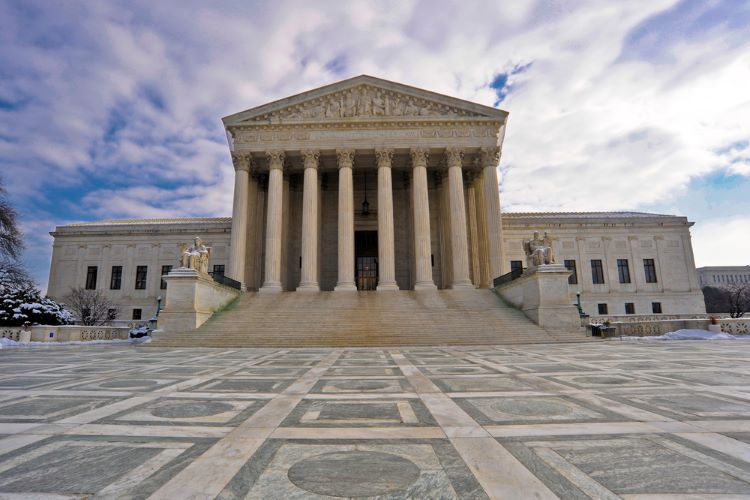Wins for 2 corruption defendants show Supreme Court’s distaste for broad interpretations of fraud laws

Image from Shutterstock.
The U.S. Supreme Court on Thursday overturned two public corruption convictions.
The Supreme Court overturned the wire fraud convictions of Joseph Percoco, a former aide to former Democratic New York Gov. Andrew Cuomo, and Louis Ciminelli, a construction executive. The May 11 decisions are here and here.
Publications with coverage include the New York Times, CNN, SCOTUSblog (here and here) and the Washington Post.
Percoco challenged his conviction for accepting $35,000 from a real estate developer who didn’t want to enter into a required “labor peace agreement” to get business from New York. Percoco was a private citizen working on Cuomo’s reelection campaign at the time.
Ciminelli was accused of conspiring to rig the bidding process for the Buffalo Billion, a $1 billion project to revitalize the Buffalo, New York, area. Prosecutors said Ciminelli worked with a lobbyist and a Buffalo Billion board official to tailor requests for proposals to favor Ciminelli’s company.
At issue in Percoco’s case was whether a private citizen with influence over government decision-making can be convicted of honest-services wire fraud.
The Supreme Court said private citizens can be convicted of honest-services fraud if they enter agreements that make them actual agents of the government. But jury instructions on the issue were based on an incorrect standard, Justice Samuel Alito said in the May 11 opinion that was joined by six other justices.
Justice Neil Gorsuch concurred in the judgment in an opinion joined by Justice Clarence Thomas.
“The court holds that the jury instructions in this case were ‘too vague,’” Gorsuch wrote. “I agree. But to my mind, the problem runs deeper than that because no set of instructions could have made things any better. To this day, no one knows what ‘honest-services fraud’ encompasses.”
In the Ciminelli case, the government had contended that the developer schemed to deprive the government of the right to control its assets by failing to disclose potentially valuable economic information needed to make economic decisions. The Supreme Court unanimously rejected the theory in an opinion by Thomas.
“We have held,” Thomas wrote, “that the federal fraud statutes criminalize only schemes to deprive people of traditional property interests,” which doesn’t include the right to obtain potentially valuable economic information.
Stephen Vladeck, a professor at the University of Texas School of Law, told CNN that the cases are “two additional data points of how hostile the current court is to expansive interpretations of federal corruption and anti-bribery laws—and to aggressive white collar prosecutions by federal prosecutors.”
“The stakes of these cases aren’t likely to be high, but the stakes of this broader pattern could be enormous—especially so long as Congress, which could clarify the reach of all of these statutes, continues to sit on the sidelines,” Vladeck said.



